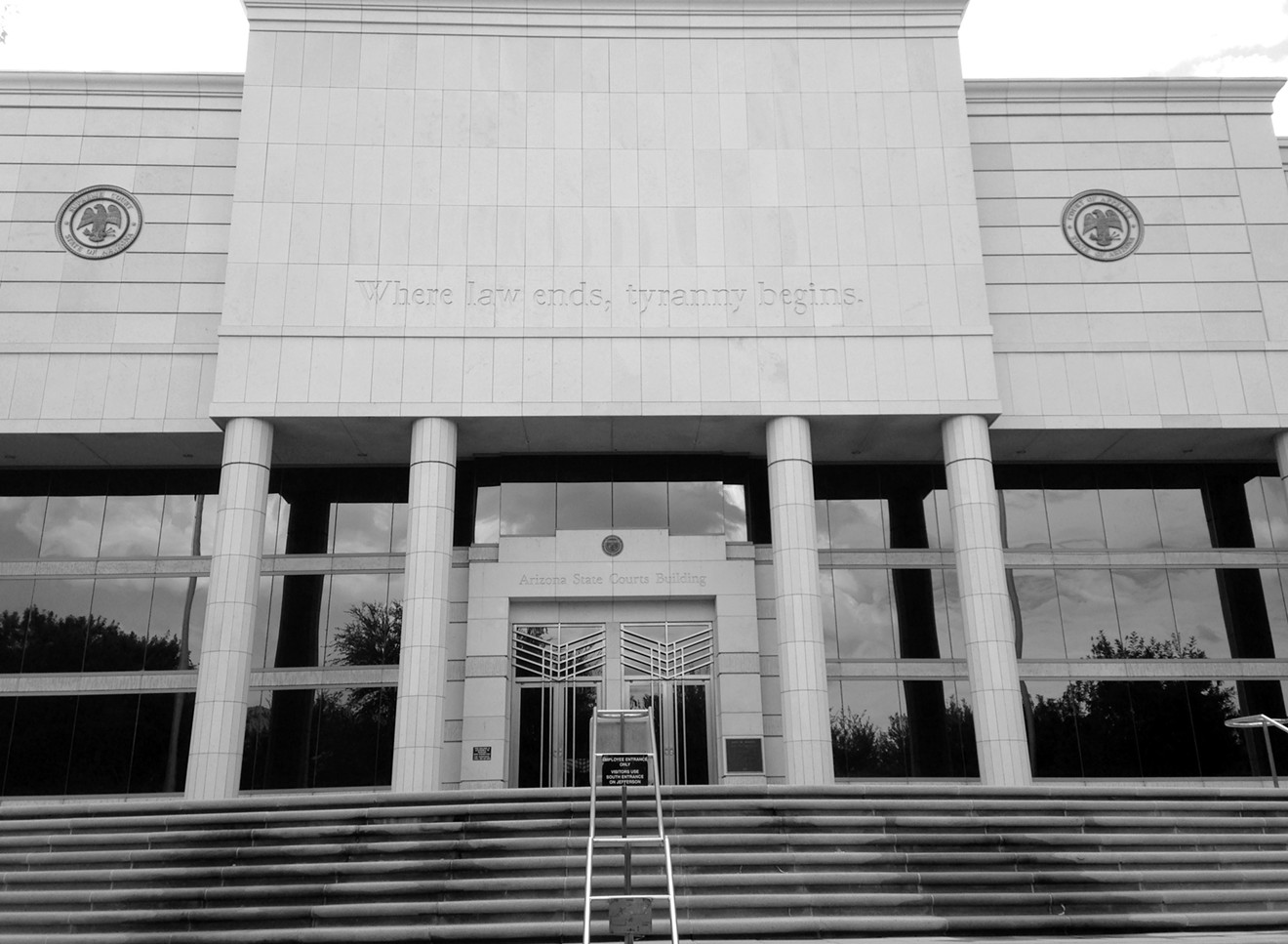The Supreme Court of Arizona summarily rejected a challenge to the state's Medicaid expansion from a group of Republican lawmakers who had sued to block the 2013 law.
Insurance for more than 400,000 Arizonans hinged on a provision in the state Constitution related to raising taxes. At issue was whether a fee assessed on hospitals to fund the state's Medicaid agency for low-income residents, known as the Arizona Health Care Cost Containment System, was actually a tax in disguise.
With the Supreme Court firmly on the side of AHCCCS, the third time was evidently not the charm for GOP lawmakers seeking to undo the expansion.
In 2013, then-Governor Jan Brewer signed into law HB 2010, which increased eligibility for AHCCCS. Under HB 2010, people with income up to 133 percent of the federal poverty level could enroll for benefits.
But GOP lawmakers argued that because the expansion required Arizona hospitals to pay into an account designed to finance the expansion, it was tantamount to a tax. And because a 1992 provision of Arizona's Constitution requires any new taxes to pass with a two-thirds majority in the Legislature, these lawmakers argued the Medicaid expansion was illegal because the measure passed only with a majority, not a super-majority.
Arizona justices disagreed.
In a unanimous opinion released Friday morning, Chief Justice Scott Bales wrote that the assessment on hospitals, set by the director of a state agency, is not a tax that would require supermajority legislative approval, just like other fees that are not set by the Legislature, such as university tuition.
"The assessment is imposed by the director on hospitals, a narrow class, and directly benefits hospitals by expanding AHCCCS coverage for uninsured patients, thereby increasing payments to the hospitals," Bales wrote.
As a result, he said, the law meets an exception to the rule, which ordinarily might tie the hands of the Legislature when raising taxes. One justice, Clint Bolick, recused himself from the case.
When legislators, led by then-State Senator Andy Biggs, filed suit in Biggs v. Betlach, they hit immediate walls. Maricopa County Superior Court, followed by the Arizona Court of Appeals, both ruled in favor of the state Medicaid Director Tom Betlach. The petition to the Arizona Supreme Court was the third attempt to scuttle HB 2010.
Christina Sandefur, an attorney for the libertarian Goldwater Institute, represented the GOP lawmakers. Other organizations, such as the Arizona Center for Law in the Public Interest, filed amicus briefs on behalf of Arizonans who stood to lose coverage.
Interestingly, the state hospital association happens to think the Medicaid expansion is a good idea, despite all the talk of fees and taxes by any other name.
The Arizona Hospital and Health Care Association sided with the Medicaid director and former Governor Brewer. In an amicus brief, the organization said the assessment on hospitals was carefully crafted to comply with the state Constitution and was better than hospitals using "resources to cover immediate spiraling uncompensated-care costs."
Moreover, the decision by the Supreme Court ensures that the lives of hundreds of thousands of Arizonans who rely on Medicaid won't be thrown into uncertainty.
In October, the Hospital Association wrote that a "reversal of the Opinion and a holding that the Hospital Assessment was unconstitutional would have immediate, devastating financial consequences for Arizona’s hospitals and healthcare systems."
"More than 400,000 Arizonans would lose their health insurance, many will return to seeking care in emergency departments, and four years of remarkable decreases in uncompensated care would come to a sudden halt and quickly regress."
[
{
"name": "Air - MediumRectangle - Inline Content - Mobile Display Size",
"component": "18478561",
"insertPoint": "2",
"requiredCountToDisplay": "2"
},{
"name": "Editor Picks",
"component": "16759093",
"insertPoint": "4",
"requiredCountToDisplay": "1"
},{
"name": "Inline Links",
"component": "17980324",
"insertPoint": "8th",
"startingPoint": 8,
"requiredCountToDisplay": "7",
"maxInsertions": 25
},{
"name": "Air - MediumRectangle - Combo - Inline Content",
"component": "16759092",
"insertPoint": "8th",
"startingPoint": 8,
"requiredCountToDisplay": "7",
"maxInsertions": 25
},{
"name": "Inline Links",
"component": "17980324",
"insertPoint": "8th",
"startingPoint": 12,
"requiredCountToDisplay": "11",
"maxInsertions": 24
},{
"name": "Air - Leaderboard Tower - Combo - Inline Content",
"component": "16759094",
"insertPoint": "8th",
"startingPoint": 12,
"requiredCountToDisplay": "11",
"maxInsertions": 24
}
]












